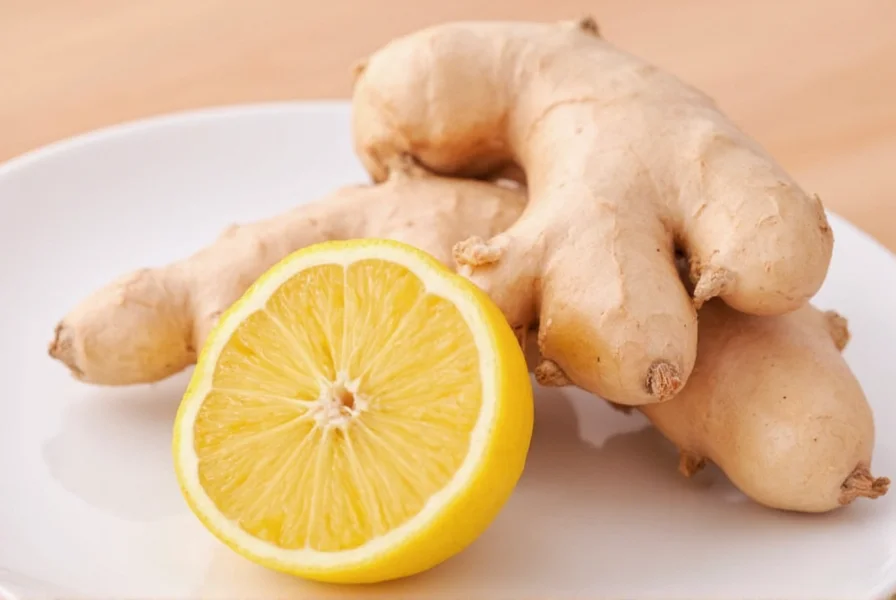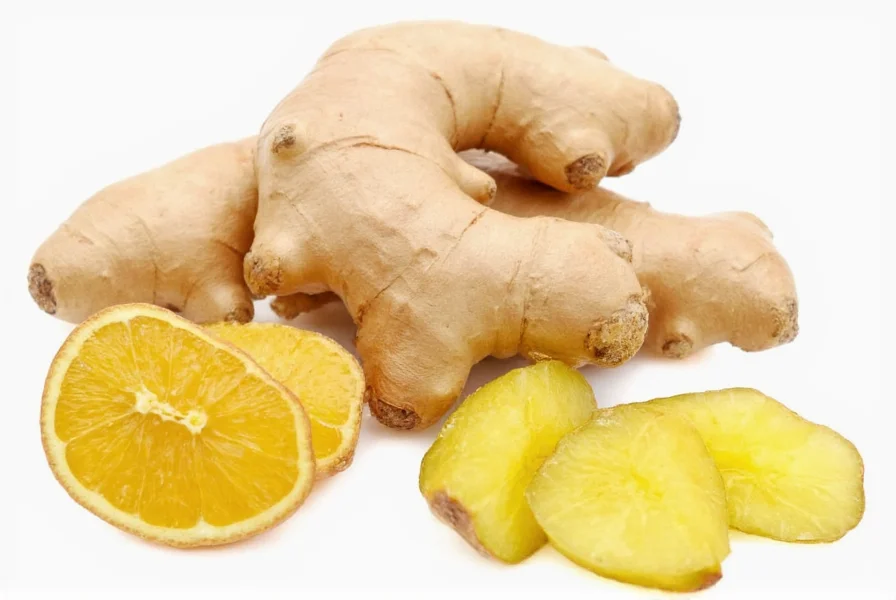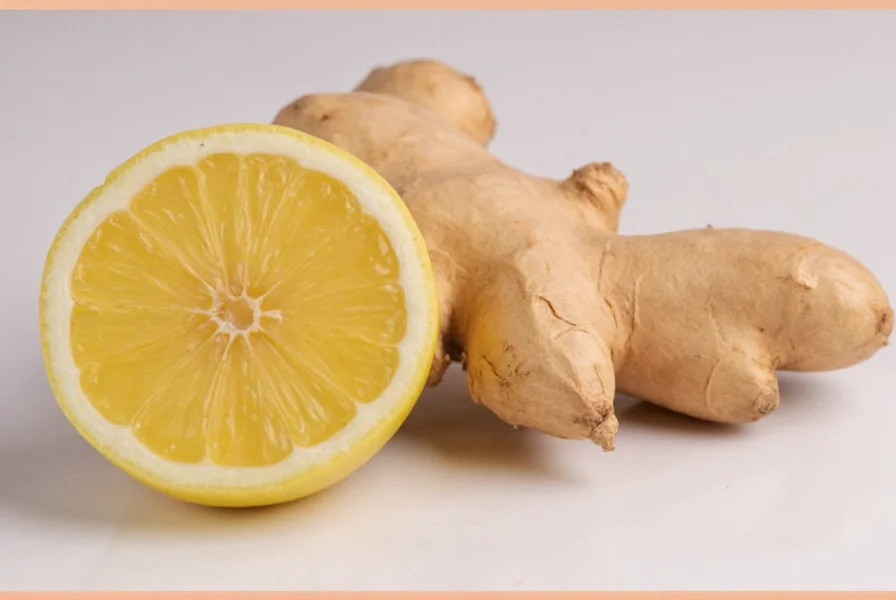When that familiar scratchy feeling hits your throat, many turn to natural remedies for comfort. Ginger has been used for centuries in traditional medicine systems worldwide to address respiratory discomfort. Modern research is now validating what ancient healers understood about this versatile root's potential benefits for throat health.
Understanding Ginger's Therapeutic Properties
Ginger (Zingiber officinale) contains over 400 bioactive compounds, with gingerols and shogaols being the most medically significant. These compounds demonstrate:
- Anti-inflammatory effects that may reduce throat tissue swelling
- Antimicrobial properties against certain bacteria and viruses
- Pain-relieving qualities similar to mild analgesics
- Mucolytic action that helps break down mucus
A 2019 study published in the Journal of Ethnopharmacology found that ginger extract significantly inhibited the growth of bacteria commonly associated with sore throats. Another clinical trial demonstrated that patients using ginger gargle experienced faster symptom relief compared to placebo groups.

How Ginger Works for Sore Throat Relief
Ginger's effectiveness for sore throats operates through multiple mechanisms:
| Mechanism | Effect on Sore Throat | Scientific Support |
|---|---|---|
| Anti-inflammatory | Reduces swelling in throat tissues | Multiple clinical studies |
| Antimicrobial | May inhibit bacteria causing infections | Laboratory evidence |
| Pain modulation | Interferes with pain signaling pathways | Animal and human studies |
| Mucolytic action | Thins mucus for easier clearance | Traditional use supported by research |
Effective Ginger Remedies for Sore Throat
For those seeking natural sore throat relief, these ginger preparations have shown promise:
Ginger Tea Preparation
The most accessible ginger for sore throat remedy involves brewing fresh ginger tea:
- Peel and thinly slice 1-2 inches of fresh ginger root
- Boil in 2 cups of water for 15-20 minutes
- Strain and add optional honey or lemon
- Sip slowly while warm, 3-4 times daily
This ginger tea for sore throat relief method delivers maximum bioactive compounds. Research suggests that longer boiling times increase the extraction of beneficial compounds, though temperatures above 175°F may degrade some volatile components.
Ginger Gargle Solution
A clinical study in the Journal of Ayurveda and Integrative Medicine demonstrated that a ginger gargle provided significant symptom relief:
- Prepare strong ginger tea as above
- Cool to comfortable temperature
- Add 1/4 teaspoon salt
- Gargle for 30 seconds, 3-4 times daily
Safety Considerations and Limitations
While ginger is generally safe, certain precautions apply when using ginger for sore throat treatment:
- Maximum daily intake should not exceed 4 grams of ginger (about 1.5 inches fresh root)
- May interact with blood thinners and diabetes medications
- Not recommended for children under 2 years
- Discontinue if mouth or throat irritation occurs
It's crucial to understand that ginger remedies address symptoms but don't treat underlying infections. Bacterial infections like strep throat require antibiotics, while viral infections need time to resolve. Ginger serves as complementary care, not replacement for medical treatment.

When to Seek Medical Attention
Natural remedies like ginger for sore throat should complement—not replace—professional medical care. Consult a healthcare provider if you experience:
- Symptoms lasting longer than 7 days
- Difficulty swallowing or breathing
- Fever above 101°F (38.3°C)
- White patches on throat or tonsils
- Swollen lymph nodes
These symptoms may indicate bacterial infections requiring antibiotics or other serious conditions needing professional evaluation. While home remedies provide comfort, they shouldn't delay necessary medical treatment for serious conditions.
Complementary Natural Remedies
Ginger works well alongside other evidence-based natural sore throat treatments:
- Honey: Demonstrated to reduce cough frequency and severity
- Warm salt water gargles: Reduces swelling and loosens mucus
- Marshmallow root: Forms protective coating on irritated tissues
- Staying hydrated: Keeps throat moist and supports healing
Combining ginger tea for sore throat relief with these approaches often provides more comprehensive symptom management than any single remedy alone.
Conclusion: Ginger's Role in Sore Throat Management
Ginger represents a valuable complementary approach for sore throat symptom relief with growing scientific support. Its anti-inflammatory and antimicrobial properties make it particularly suitable as part of a holistic sore throat management strategy. While not a substitute for medical treatment of infections, properly prepared ginger remedies can provide meaningful comfort during recovery. As with any natural remedy, understanding both the benefits and limitations of ginger for sore throat treatment ensures safe and effective use.
How quickly does ginger work for sore throat relief?
Most people notice some relief within 30-60 minutes after consuming ginger tea or gargle. Maximum benefits typically occur with consistent use over 2-3 days. Clinical studies show significant symptom improvement within 24-48 hours of regular ginger use for sore throat discomfort.
Can I use ginger powder instead of fresh ginger for sore throat?
Yes, ginger powder works effectively though fresh ginger generally contains higher concentrations of active compounds. Use 1/2 teaspoon of high-quality ginger powder per cup of hot water. Powder may be less potent than fresh root, so you might need slightly higher doses for similar effects when using ginger powder for sore throat relief.
Is ginger safe to use with antibiotics for strep throat?
Generally yes, ginger doesn't typically interfere with common antibiotics. However, ginger may enhance blood-thinning effects of certain medications. Always inform your doctor about all remedies you're using. Ginger serves as complementary care alongside prescribed antibiotics for bacterial infections, not as a replacement.
How much ginger should I use daily for sore throat relief?
For sore throat relief, use 1-2 inches of fresh ginger root (about 10-20 grams) boiled in 2 cups of water, consumed 3-4 times daily. Total daily ginger intake shouldn't exceed 4 grams. More isn't necessarily better—excessive amounts can cause stomach upset or other side effects while providing diminishing returns for sore throat symptoms.
Can children use ginger for sore throat relief?
Children over 2 years can safely use diluted ginger tea for sore throat relief. Use half the adult dose (1/2 inch ginger in 1 cup water) and ensure it's cooled to safe temperature. Never give honey to children under 1 year. For young children, consult a pediatrician before using ginger remedies, especially if symptoms persist beyond 24-48 hours.











 浙公网安备
33010002000092号
浙公网安备
33010002000092号 浙B2-20120091-4
浙B2-20120091-4